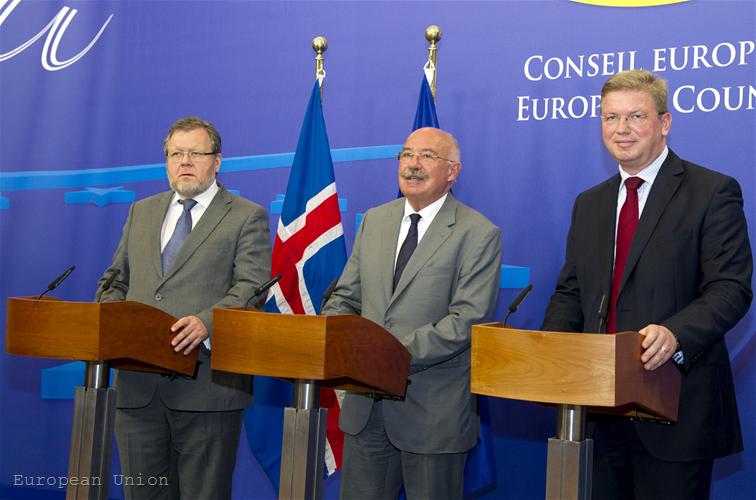A European stalemate
Adelina Marini, June 22, 2010
 There is a situation in chess, called stalemate when neither of players wins or loses. This is the situation the European Union has reached after decades of institutional, economic and currency building. And although it might have seemed that Britain was the only winner at last Thursday's European Council, the truth is that Britain is also a part of this stalemate.
There is a situation in chess, called stalemate when neither of players wins or loses. This is the situation the European Union has reached after decades of institutional, economic and currency building. And although it might have seemed that Britain was the only winner at last Thursday's European Council, the truth is that Britain is also a part of this stalemate.
What is the stalemate about?
All players play according to relatively common rules with a lot of exceptions and frequent non-application of sanctions. Everyone is aware that such a game is a short-term one but from the point of view of the "national interest" (to be perceived as next election), such a style of game is satisfactory. Until Greece's turn came for a move. Then it became clear that Greece had used techniques that are out of the rules and, honestly speaking, were not included in the rule-book as a violation. And the referees had also closed their eyes because the game was going on well and in the end of the day everyone thought he outwitted the rest.
Now the EU is facing a complicated challenge - again, by the way - what to do from now on. As in the old joke - again we have two ways: one is the game to be continued as a simulation waiting to see what will happen next and, the second way is toward more integration. Both ways require very serious amendments of basic European documents, which everyone is trying to avoid at any price.
The players
Not a smaller problem are the players themselves - led in their unification in a common team by values and criteria which look marvelous on paper but practically cannot be implemented. The comparison is easy not only by reviewing policies, politicians, causes and effects but through a purely empiric check - for example like driving on the axis of the EU - Bulgaria, Hungary, Austria, Germany, Belgium. The reality strikes like the Katrina hurricane.
Such a comparison not only shows that these countries have incomparable starting positions but also that the so called values are different. In fact, this is a lesson which more European politicians should learn because visiting a country by plane and than driving a nice car does not give that clear perspective which politicians should have.
Driving out of Bulgaria reveals a pity view - a recently made road but badly designed, with bad marking, no "cat eyes" aside the road to show you where it ends, no one had given even a thought that this road could be used at night so the texture of the asphalt should allow the light from the headlights to be reflected instead of being absorbed, the road signs are totally out of harmony with the capabilities of the road, the boards (if available) are on places where there is no use of them, and all of the sudden you stumble upon a Traffic police booth. And more and more.
It is no accident therefore that Prime Minister Boyko Borissov said after the European Council on Thursday (June 17) before Bulgarian journalists, who awaited for him for more than an hour outside the Bulgarian national press briefing room, that while the others talked about new technologies and innovations we were wondering where to get money from for road infrastructure and for repairing of street holes. He was terribly right about the problem but not about the reasons.
For 20 years of transition a lot more could have been achieved and this is explicitly evident in neighbouring Serbia, which is impatient to start accession negotiations with the EU and is currently building highways, extensions, bridges, overhead roads no matter if it rains, if it is hot or is snowing. And Serbia went through a lot more for the past 20 years than Bulgaria - wars, division, separatism, so many changes of national name and state symbolism that we can hardly imagine.
And against this background are countries like Germany and France who are fully aware that something is terribly wrong and all the answers of the problem are hidden on a European level but they quarrel how exactly it should be solved. And again - we are talking about a clash of values which brings me back to the beginning - that indeed the problem starts with values.
There is almost no EU country with which we could stay close and relieve ourselves with the words - thank God, it's not only us.
And given all those heterogeneous "starting positions", different values and national interests here comes Britain - white all over. The national press briefing of the new British Prime Minister David Cameron was impressive. It was not a coincidence that euinside paid special attention to it. This was his first European Council since he is leading the first ruling coalition in Britain for decades. And he was the man who really looked happy. While most of his colleagues as well as the chiefs of the most important European institutions looked exhausted, tired and losing faith, David Cameron seemed quite satisfied.
According to him the key British interests are protected. It was his briefing that showed in a very painful way the reality, which although it might sound a bit over exaggerated, but it looks like a tower of cards - waiting to fall with the first stronger wind.
On the most important issues on which the Council argued the entire Thursday, Britain had claimed victory. On banking tax and transactions fees - the Council had accepted the British position that no matter the fact the London supported any international agreements on the issue, it would go ahead with its own introduction of similar taxes. On budgetary surveillance - yes, the British Prime Minister admits, Britain is among the countries with the worst budgetary deficit. He said that he even felt uncomfortable sitting at the table with his colleagues who struggled to do the impossible to control the problem.
But in the same time Britain welcomes the decisions any sanctions on countries that violate the new rules under the Stability and Growth Pact not to be applied to countries outside the eurozone. "I'm clear that means that Britain will always present its budget to Parliament first". On Europe 2020 strategy - it is very good, Cameron says, because it will focus on employment and sustainable growth through boosting competitiveness, productivity and growth potential.
"Crucially I want to ensure that this strategy did not interfere with national competences and it makes very clear in the final text that will be released that it shall not alter Member States competences, I think that's important. This is strongly in Britain's interest this document - a stronger European economy will strengthen economic recovery at home, create new jobs and help us drive our exports".
The conclusion of Cameron was also quite indicative about the position of this country in the EU - we should be pragmatic, he said, while in the same time he was carefully consulting with the pile of paper in front of him for every word he said. "Europe should be about political will and should not be about endless institution building and new rules and new processes. It should be about substance and I found today (Thursday) the healthy degree of a consensus about that that we should be about doing things rather than providing new structures to talk about things. That is the sort of European policy that I believe in and I thing we made some good progress today".
It is hard to find a more eloquent statement than this one. Probably, this is the famous third way which Britain is constantly looking for and with regard to the EU will probably find it at last. The way giving each Member State the chance to defend its national interests and the EU would be just an auxiliary tool, used only when necessary. To put it in another way - nothing more than another international organisation, a fan club or whatever you might choose to name it. And if this might not be a problem for countries like Britain, Germany, the Scandinavian states and even Poland, the news should be devastating for members like Bulgaria who have always considered a union like the EU or even the eurozone as a heal-all of their problems for one very simple reason - such countries cannot solve their issues by themselves.
And as I said in the beginning, the situation is a stalemate - there are no losers nor winners. This goes for Britain too which admits that 50% of its export is for the EU and 40 per cent for the euro area. This is why it is in the British national interest the eurozone and therefore the entire EU be able to develop in a sustainable way and to prosper. The key however is in the sentence: "Is it in our interest for the eurozone to sort out their problems and issues? Of course it is, we want a strong eurozone that is a good customer for British goods and British exports. But I always feel the decisions to stay outside the euro, which I always supported was the right one and it does give you additional flexibilities".
Then the question Bulgaria should answer is: do we have this type of flexibility? In Cameron's style the right answer should be: "Of course it is not".
 | © European Union
| © European Union | © Larus Karl Ingason
| © Larus Karl Ingason | © euinside
| © euinside